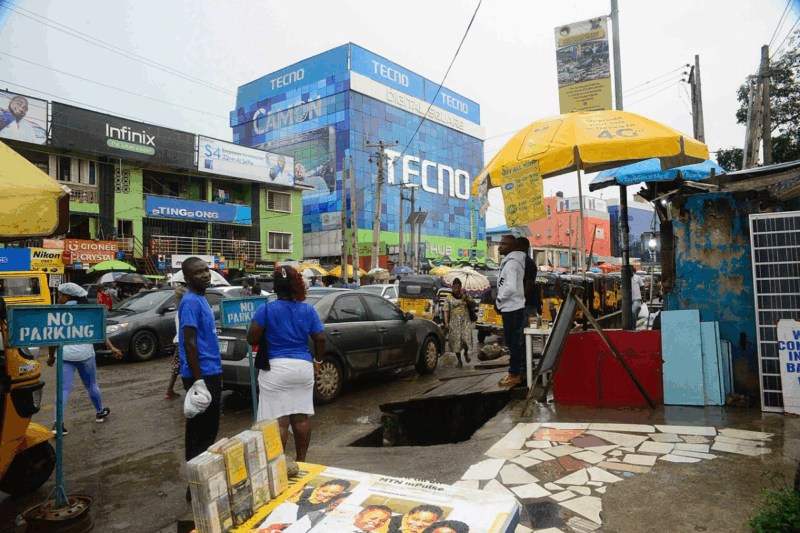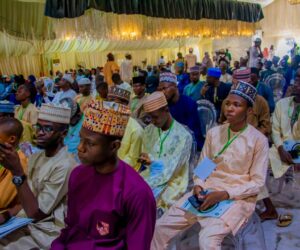Our favourite tech hub, squeezed between a house where children once learned to bike and neighbours complaining of noise every time someone tests speakers.
That’s Ikeja’s current Computer Village, part market, part open-air challenge course for residents. Now, Lagos is saying: pack up, and move to somewhere designed for commerce, not compromise.
The State Government has confirmed that Computer Village will finally relocate to the ICT & Business Park in Katangowa, Agbado Oke-Odo LCDA.
For more than a decade, the relocation has been on the lips of traders, officials, and developers, yet the project stalled in endless rounds of announcements and disputes. But this time, meetings are happening, plans are being redrawn, and officials insist the move is no longer a rumour but a matter of “when,” not “if.”
The official reason is this; Ikeja was never meant to house Africa’s biggest tech bazaar. What began as a cluster of phone repair stalls grew into a sprawling hub that now chokes the city with traffic, fuels environmental complaints, and keeps neighbours locked in a daily struggle against noise and overcrowding.
The government says Ikeja must return to its residential roots, and traders deserve a space designed for their trade.
Katangowa, the proposed new home, is not pitched as a market alone but as an integrated ICT and Business Park. The blueprint includes banks, hotels, car parks, recreation centres, a fire station and police post, all connected by modern access roads and supported by digital infrastructure.
Officials describe it as the future “Silicon Valley of West Africa,” a hub not only for hardware and software dealers but also for start-ups, training centres, and co-working spaces.
Market leaders like Iyaloja Chief Abisola Azeez have given cautious support, noting that a more organised environment could help businesses grow and attract serious investors.
However, the traders themselves are worry. Many wonder whether customers will be willing to travel further out, whether relocation costs will cripple already strained businesses, and how supply chains, built over decades in Ikeja, will adapt to a new setting.
Part of the doubt comes from history. Traders recall how the relocation was first announced more than ten years ago, only to be delayed repeatedly. At one point, the developer contracted to build Katangowa was disengaged, leaving many traders who had already paid fees stranded and demanding refunds. This has made people wary, even as government officials now insist the project is back on track.
The timeline remains fluid. Some traders told me after yesterday’s meeting that the move may still be at least a year and a half away. The government has promised a phased approach, beginning with infrastructure rollout before gradually onboarding businesses between late 2025 and 2026.
What happens next will determine whether Katangowa becomes a triumph or another abandoned dream. If the promised infrastructure is ready on time, roads, drainage, power, and security, the relocation could transform Lagos’ tech economy, giving Computer Village traders the chance to operate in a proper business environment while also opening the door for new players in fintech and digital services. But if promises fall flat, the city risks swapping one congested hub for another half-delivered project.
So, Computer Village remains where it has always been: a noisy environment in the heart of Ikeja. But the writing is on the wall. Lagos wants change, and sooner or later, the traders will have to decide whether to embrace Katangowa or resist another government timetable.








